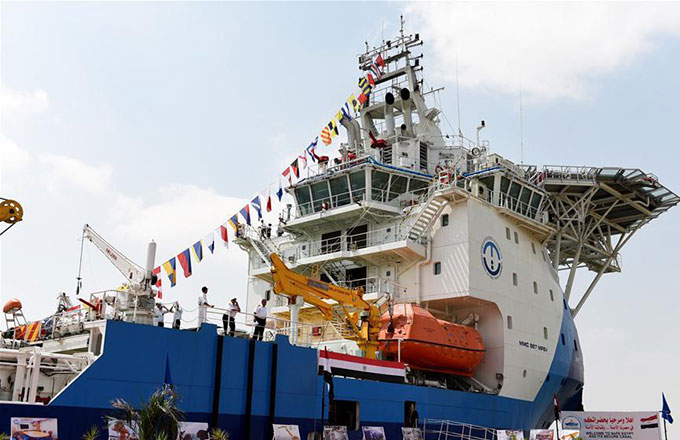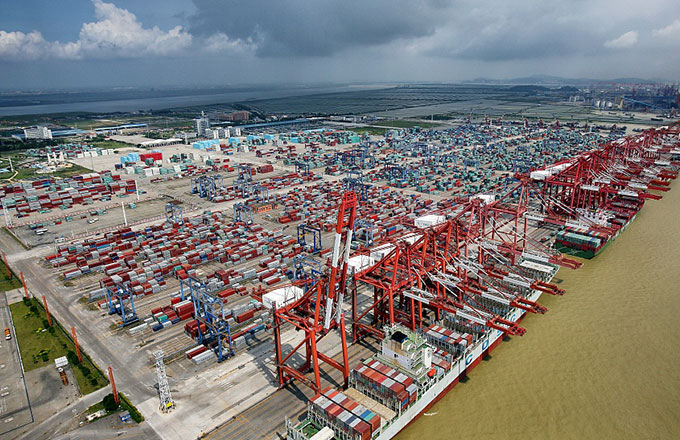Premier Wen's speech at Sixth China-EU Business Summit
BRUSSELS-- The following is the full text of Chinese Premier Wen Jiabao's keynote speech delivered at the Sixth China-European Union Business Summit here on Wednesday:
Confidence was the keyword of my speech at the China-EU Business Summit two years ago when the financial crisis just broke out. Today, the keywords are calmness, wisdom and courage.
With so many Chinese and European business leaders sitting in front of me, I would like to focus on several issues the EU business community is concerned with and use this opportunity to make a few clarifications so as to eliminate misunderstandings and boost our cooperation.
It is a basic fact that the bilateral trade and investment between China and the EU have been growing rapidly. EU statistics show its overall exports declined in 2009 due to the impact of the financial crisis. However, its exports to China increased by 4 percent. In the first half of this year, EU exports to China surged by as much as 42 percent.
Last night, I paid a brief visit to Germany. I told Chancellor (Angela) Merkel that the monthly bilateral trade between China and Germany averaged about 10 billion U.S. dollars, and that the 2010 total would probably surpass 120 billion dollars. The trade between China and the EU was worth some 400 billion dollars in 2009, and it would likely exceed 500 billion dollars this year. These are the basic status quo and facts.
On the exchange rate of the Chinese yuan, I said yesterday when meeting with the Euro Group troika that European political and business leaders should not join the "chorus" to pressure China to appreciate the yuan.
Again, let's take a look at some basic facts. The yuan has appreciated by an accumulated 55 percent in terms of the real effective exchange rate since China initiated the reform of the yuan exchange rate mechanism in 1994. Some major currencies have all depreciated during this period.
China further deepened the reform of the yuan exchange rate mechanism in July 2005. The yuan has appreciated by 22 percent against the U.S. dollar since then. During this period of time, however, China's trade surplus against the United States has still increased by a large margin.
We have registered surplus in trade in goods, but deficits in services trade. We have had surplus in manufacturing trade, but deficits in general trade. We have had surplus in trade with the U.S. and the EU, but deficits in trade with South Korea, Japan and the Association of Southeast Asian Nations (ASEAN). Doesn't all this show that it is an issue of trade structure instead of a mere exchange rate?
The euro exchange rate experienced large fluctuations recently, but it was caused by the U.S. dollar, instead of the yuan. How can you place the blame on China? The imbalance of trade is caused by structural problems against the backdrop of globalization. It should not be politicized. We pursue balanced and sustainable trade, and in no way seek surplus.
In the cold winter in January 2009, I visited Europe and brought with me not only the confidence needed to overcome the financial crisis, but also a procurement delegation to place orders to the European countries.
The EU is a strategic partner to China, and China did not look on unconcerned when some eurozone countries were in trouble. We continued to hold and buy euro-denominated bonds and helped Iceland, Greece, Spain, Portugal and Italy in their most difficult time.
We will continue to render assistance and tide some countries over their difficulties. China is a friend indeed and I believe the entrepreneurs here all know it.
You should not pressure China on the yuan's appreciation if you consider the issue from another perspective. Many Chinese export enterprises have profit margins of only 2 to 3 percent, 5 percent at most.
Should the yuan appreciate by 20 to 40 percent, as demanded by some people, a large number of Chinese export enterprises will go bankrupt, the workers will lose their jobs and the migrant workers will have to go back to the rural land, making it hard for society to remain stable. The world will by no means benefit from a crisis in the Chinese economy.
China contributed about 50 percent of the global economic growth in 2009. It is a huge market with great potentials for many enterprises. Once again, I would like to tell our friends in the industrial and business community candidly: Don't pressure China on appreciation of the Chinese yuan.
We will stick fast to the reform of the yuan exchange rate mechanism. The reform involves developing a managed floating exchange rate system based on the market supply and demand and adjusted to a basket of foreign currencies, to gradually allow more flexibility in the yuan exchange rate while maintaining its basic stability on a reasonable and balanced level.
If the yuan exchange rate is unstable, enterprises will also be unstable. So will be employment, and society in general. Should China have problems in economy and society, it will be disastrous for the world.





















